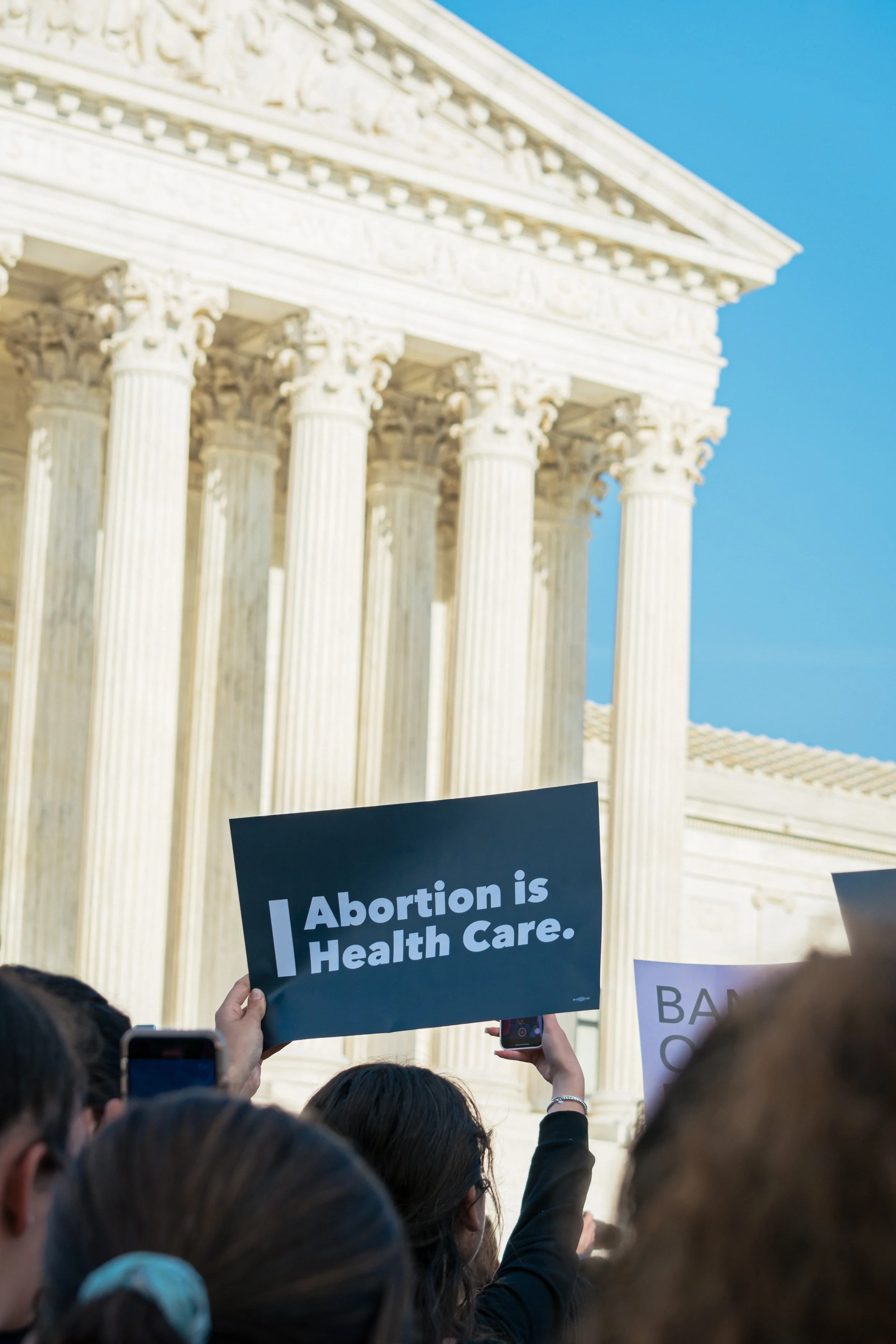Crisis in Reproductive Freedom: The Dobbs Decision and Contraception Access
By Lisa Grafstein, Disability Rights NC
June marked the one-year anniversary of the fall of Roe v. Wade and the loss of women’s security in reproductive freedoms. Since last summer, 14 states have passed laws banning access to abortion care. Despite assurances that abortion laws would not be used to criminalize women and doctors, we have seen abortion bounty hunter laws in Texas, Oklahoma, and Missouri. Some states are considering “aiding and abetting” laws to criminalize medical professionals and anyone who helps a woman get an abortion.
Abortion access has been just one feature of the long-established right to privacy and bodily autonomy. Americans have also relied on access to safe, legal contraceptives, with two thirds of women of child-bearing age regularly using some form of contraception.
In the Dobbs decision overturning Roe, Justice Thomas opined in his concurrence that the same rationale that overturned Roe could – and should, in his view – be used to overturn other cases that protect our personal freedoms. Here’s what he said:
“In future cases, we should reconsider all of this Court’s substantive due process precedents, including Griswold, Lawrence, and Obergefell. Because any substantive due process decision is “demonstrably erroneous,” we have a duty to “correct the error” established in those precedents.”
The Griswold he referred to was Griswold v. Connecticut, which established the proposition that people have a right to use contraception.
Justice Thomas’ comments should not be dismissed as idle constitutional theorizing. According to Slate, some conservatives “are executing a game plan that rests on three strategies: Conflate contraception with abortion, claim that birth control is dangerous to women’s health, and let right-wing judges do their thing.” For example, some on the right are intentionally characterizing certain forms of contraception, such as IUDs and Plan B, with abortion. The premise is that a fertilized egg (or even a potential one) constitutes a pregnancy even before implantation. The arguments against contraception are bad science on a number of levels. But this is an ideological plan and not a scientific one.
While concerns about future access to contraception have been brushed aside, we should know by now that seemingly fringe ideas can quickly make their way into law. That is precisely what has happened with punitive abortion laws that criminalize women and doctors. The other indication we have is the refusal to codify protections for contraception. Democrats in the U.S. House of Representatives have introduced a bill to codify the right to contraception. While insisting there is no plan to limit access to contraception, Republicans immediately shelved the bill. The same happened in North Carolina.
Beyond formal legal limitations, growing attacks on access to contraception – including false narratives about safety – have more subtle and pernicious affects on availability. These include, as reported in the New York Times: cutting off funding for Planned Parenthood, denying teenagers’ access to contraception without parental consent, and efforts to prevent public funding of contraception through public sector health insurance.
Access to contraception is the norm. Birth control is basic health care. The vast majority of Americans oppose limiting access to contraception. Politicians and the government should have no role in making personal healthcare decisions for individuals and their families. As our rights have come under attack in recent years, it is imperative that we protect this important freedom. This should not be controversial.
About Disability Rights NC
Disability Rights NC is a 2017 grantee of the Barbara McDowell Foundation whose mission is to protect the legal rights of people with disabilities through individual and systems advocacy. Its staff attorneys and attorney managers conduct a wide range of legal advocacy services for people with disabilities, including the provision of direct legal representation to people with disabilities to protect their rights and ensure they receive the services to which they are entitled by law, bringing impact litigation, and acting as amicus curiae in disability-related cases.


